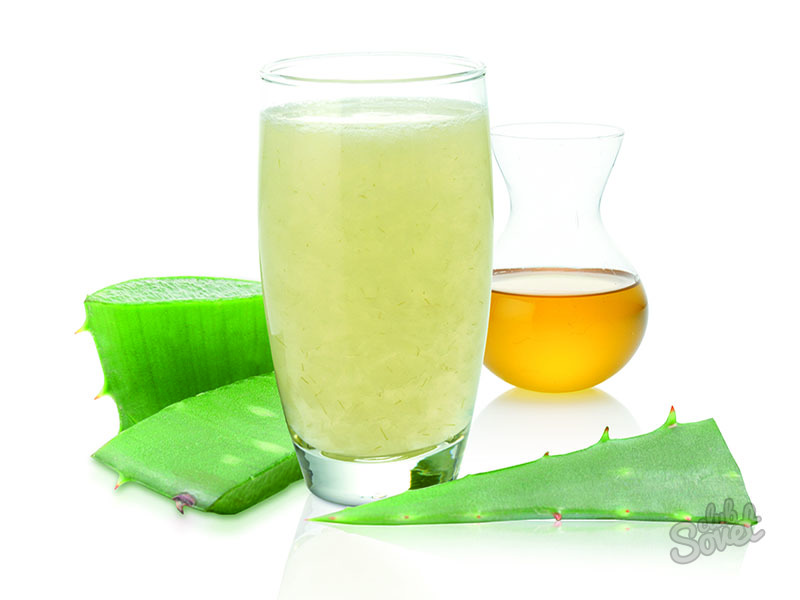How to treat a severe cough. Causes and treatment methods for severe cough
Many people, when deciding the question: “How to treat a severe cough?”, do not want to seek the help of specialists. And this is the main mistake. In some cases, when it seems that the cough is already subsiding and treatment can be simplified or stopped altogether, complications appear the very next day. In such cases, you may need to take antibiotics, which should not be taken without a doctor's prescription. The severe cough may return and continue for several weeks. You should not refuse to take care of your health with the help of a qualified specialist. The only thing that can be done, besides visiting a doctor, is to add additional procedures that can restore health faster.
In order to relieve a severe cough, taking medications alone will not be enough. Therefore it is recommended
- drinking plenty of herbs, both sold in pharmacies and collected independently. An excellent assistant for removing phlegm are decoctions of: viburnum, raspberry, mint, rose hips, thyme, licorice, chokeberry, plantain.
- You need to drink as much as possible, but you should not forget that before each liquid intake, you should eat one teaspoon of honey. It will help thin mucus and relieve coughing. But, reception is recommended only if there is no allergy to bee products.
- When thinking about how to treat a severe cough, you should also not forget about inhalations. They will not only help remove mucus, relax muscles, but also have a beneficial effect on the respiratory tract. Even ordinary inhalation in the form of boiled potatoes or steamed eucalyptus can have a beneficial effect on the situation. The only thing to remember is that after 15-20 minutes of inhalation you need to wrap your head up for 30-50 minutes. This will ensure that even after the procedure is completed, the beneficial effects on the body will not stop.
It is strictly forbidden to treat a severe cough with drugs that suppress it. This will only worsen the situation and delay the healing process.
Breathe heavily
Often, a runny nose is a concomitant symptom of the disease. In this case, it is difficult to breathe, the cough intensifies and emergency measures must be taken. In this case, inhalations can also help. But, at the same time, it is necessary to follow a simple breathing technique: inhale through the nose and exhale through the mouth. This way, all airways will be cleared. It will be important to rinse the nasal cavity with saline solutions 3-4 times a day. But it is better not to take vasoconstrictor drops, as they can have an adverse effect and after some easing of the symptoms, they may become stronger again.
SO what not to forget when treating a cough?
Drug treatment of cough
Drugs used in the treatment of cough are divided into two main groups - mucolytics and expectorants. The process of removing sputum from the bronchi is influenced by the state of the sputum, that is, its viscosity, and the rate of its removal by the bronchi. There are muscles in the wall of the bronchi, the contraction of which helps move mucus upward towards the nasopharynx. The ability of these muscles to contract determines the rate at which mucus is removed from the lungs.
Mucolytics reduce the viscosity of sputum by changing its chemical composition, breaking chains of molecules into smaller ones.
Expectorants soften mucus by diluting it with additional fluid secreted by the bronchial mucosa. In addition, these drugs increase coughing and, accordingly, muscle contraction of the walls. respiratory tract, increasing the rate of removal of lung contents.
Treatment of dry cough
If, after a detailed examination and diagnostic methods, the doctor determines that the cause of the dry cough is not a lung disease, he may prescribe antitussive drugs. They suppress the urge to cough by inhibiting the cough center, which is located in the medulla oblongata. Also, these drugs reduce the sensitivity of the mucous membrane of the bronchi and trachea, thus preventing the release of nerve impulses that cause coughing. These two mechanisms formed the basis for the division of antitussive drugs into groups:
All other cases of dry cough require treatment of the cause of the disease, coupled with therapy aimed at thinning the sputum.
The drugs used to treat productive cough were indicated above - mucolytic and expectorant drugs. It is worth adding that expectorants are divided into two types according to their mechanism of action.
The most popular mucolytics today are acetylcysteine (ACC) and ambroxol (lazolvan).
General rules to avoid coughing or relieve it.
These principles apply mostly to coughs of unknown origin, when a medical specialist excludes the presence of obvious problems in the lungs.
- Inhalations are suitable for adult patients and children over four years of age. In children younger than this age, the procedure may cause suffocation.
- More often, inhalations are made using medicinal herbs (coltsfoot, sage, chamomile, linden) or baking soda. Several procedures can be performed per day.
Physiotherapy for cough
Physiotherapy can be used both in conjunction with drug treatment, accelerating recovery, and independently. Unlike medications, physical therapy does not cause side effects and is suitable for almost everyone. Its effect is due not only to local effects, but to a general strengthening effect on the entire body. Physiotherapy has been used since Ancient times, its expediency was either categorically denied by skeptics, or actively promoted by practitioners who received excellent results.
The main directions of physiotherapy in the treatment of cough
- Correct breathing. When coughing, physiotherapists recommend holding your breath as long as possible at the end of your inhalation. The breathing itself should be shallow, and inhaling and exhaling too quickly should be avoided.
- Body position that brings relief when coughing.
- The first is the coachman's pose. The patient should sit, relaxed, on the edge of a chair, with his legs apart. Place your elbows on your knees. Straighten your spine as much as possible, look straight ahead. It is important that the breathing muscles are relaxed.
- The second is the bag pose. The patient kneels, with his forearms resting on the floor and his head on the back of his hands. The respiratory muscles are not tense.
- A body position that promotes better drainage, that is, cleansing of the respiratory tract. The technique involves positioning the body head down. Alternatively, lie on the bed with your stomach down, top part the torso hangs down. The head rests on crossed arms.
- Sports events, sauna, climatic conditions. Thanks to regular visits to the bathhouse, the body's exposure to various infectious agents is reduced. The bath improves lung function in general. People with increased bronchial reactivity, for example, patients with bronchial asthma, should be careful when visiting the sauna.
- Hardening has been and remains the main way to increase the resistance of the immune system to difficult environmental conditions.
- It is necessary to monitor the air humidity in the room. Too dry air contributes to severe irritation of the mucous membranes of the respiratory tract. It also dehydrates the phlegm so that it cannot leave the lungs fully.
- Frequent temperature changes contribute to the development of cough and its occurrence. Therefore, people prone to unmotivated coughing attacks should try to change the temperature gradually, protecting themselves from the sudden release of their stuffy room into the cold and vice versa. Sometimes this gives tangible results.
- Sometimes people do not realize that the cause of their constant cough is chemical particles inhaled in everyday life. These include aerosols, powders, floor cleaners, dishwashing detergents and other types of household chemicals.
- Coughing, of course, will not bring obvious relief, but this volitional act will contribute to the rapid removal of mucus and, consequently, recovery.
In addition to medications and physical therapy, each patient can speed up the healing process and make it easier. To do this, he should follow a few simple rules.
- Drink more water. A sufficient volume of fluid helps restore the water balance in the body, which is disturbed during illness. Adequate water balance not only helps to thin sputum, but also improves the removal of pathogens from the body, as well as speedy restoration of the immune system. Alkaline mineral waters are good for colds and sore throats. Alkalis will additionally remove phlegm.
- Nutrition plays an important role in the recovery of the body. It is better to eat low-calorie, fortified foods. For example, vegetables, fruits and dried fruits, low-fat dairy products. It is better to eat meals more often, but in small portions.
- If the disease occurs during the cold season, you should humidify the air by placing wet towels on the radiators or using air humidifiers.
- Don't forget about inhalations. It is better not to use the “old” method of inhaling steam over a pan of potatoes, as it is not effective. For the procedure you need to have a nebulizer, which will deliver particles of the drug directly to the lungs. In addition, it is almost impossible to make children breathe over a saucepan, but a nebulizer is more likely to arouse their interest.
- medications that suppress the cough center. These include products that contain codeine, butamirate, paxeladin;
- medications that reduce the sensitivity of the bronchial mucosa - libexin.
- The drugs act reflexively. These drugs irritate the receptors located in the stomach, which increases the secretion of saliva and bronchial secretions, which dilute phlegm. These include preparations based on licorice, marshmallow, thermopsis, and essential oils.
- Resorptive action drugs. They are absorbed in the gastrointestinal tract, after which they exit through the bronchi and thereby increase the secretion of mucus in the respiratory tract. Such medications include sodium and potassium iodides, sodium bicarbonate (baking soda), ammonium chloride.
Massage for cough treatment
Massage in the treatment of cough brings tangible benefits and perfectly complements traditional therapy.
The ideal time for a massage is before bed. You can enhance the effect of the massage by rubbing in medicinal ointments that have a warming effect. Instead of ointments, you can use cocoa butter or regular massage cream. Performing a massage will not take much time - about 20-30 minutes, but the effect of this procedure will significantly improve the patient’s condition, relaxing him and helping to greatly cleanse the bronchi.
Ointment for cough treatment
Cough ointment is a product that has a warming ability; it should be used on certain areas of the body that need to be warmed up. You should avoid the left half of the chest,
so as not to harm the cardiovascular system. Doctor Mom ointment has proven itself well. This product has no contraindications and is gentle on the skin.
Cough ointment is a rare remedy that can be safely used by pregnant women and children. You need to use such ointments by rubbing them on the chest, back, and throat. The procedure should last at least ten minutes. Then to save thermal effect you should put on a T-shirt and go to bed. The ointment is a good alternative to mustard plasters and cups, which were very widely used some time ago and were perhaps the only method of fighting colds.
Inhalations
Inhalation therapy, discussed above, occupies a leading position among the available home cough treatments and therefore deserves detailed description. The essence of inhalation is the delivery of active medicinal substances to the lungs by inhalation.
Traditional inhalations over a pan of steam actually do not have an effect, since the particles in this procedure are too large and settle in the upper respiratory tract without reaching the lower ones.
A nebulizer is a device that sprays a medicinal substance into very small particles, which allows them to easily travel all the way from the nasopharynx to the lungs. Nebulizers should be used for inhalations.
Inhalation therapy helps thin mucus and improve its removal. This action is achieved thanks to essential oils and other substances entering the lungs. Additional effects of inhalation therapy are anti-inflammatory, bronchodilator, antimicrobial.
Indications for inhalations: chronic and acute infections of the bronchi, upper respiratory tract, inflammatory lung diseases, respiratory diseases, pulmonary obstruction, bronchial asthma.
Inhalations should not be used in the following cases: allergic reactions to substances used during the procedure, spontaneous pneumothorax, extensive cavities in pulmonary tuberculosis, pulmonary emphysema in bullous or widespread form, heart failure of the third degree, a tendency to frequent spontaneous bleeding, hypertension above the second degree, atherosclerosis with cerebrovascular accident, previous stroke.
Compresses for cough treatment
Compresses in the treatment of cough will be useful if it is impossible to use other methods of treatment. For example, with allergies to medications, inability to purchase the right medicine on time, distrust of other methods of healing.
Compresses are versatile, easy to prepare, budget-friendly and effective. There are many types of them - oil and alcohol, dry and wet, hot and cold.
A recipe for one of the most basic hot compresses. It requires water and apple cider vinegar in a ratio of three to one. Add a small spoon of honey to the solution. After thoroughly mixing the liquid, moisten gauze or a napkin in it and apply it to the area of inflammation - the throat or chest. Cellophane is placed on top of the napkin and the whole thing is wrapped with a warm scarf. The procedure time is 20-30 minutes. This compress will be effective at the first sign of a cold.
If the skin is hypersensitive to aggressive irritants, you can make a more gentle compress based on beer. A glass of beer should be warmed up a little, a teaspoon of honey should be dissolved in it and, dipping a napkin or soft cloth into the resulting solution, apply it to the throat. Insulate the compress in the same way as the previous one. Action time - 20 minutes.
Another option for a fairly effective remedy is a honey compress. The chest is rubbed with liquid natural honey, then compress paper or parchment is placed on it. Cover yourself with a blanket and lie down until your chest feels warm. Afterwards, the honey is washed off with a stream of warm water, the chest is wiped dry and rubbed with vegetable oil. To enhance the effect in sunflower oil You can add a couple of drops of essential oil - fir or eucalyptus. It is ideal if linden honey is used for such a procedure.
Beneficial properties of onions and honey against cough
Honey in combination with onions was successfully used by our ancestors to treat coughs. Even an intense cough can be effectively eliminated by using this remedy. Honey is an excellent treatment, characterized by remarkable bactericidal and anti-inflammatory properties. Onions are a natural antiseptic that can qualitatively eliminate pathogenic bacteria and microorganisms. This explains the fact that the combination of these two natural components ensures the creation of a high-quality medicine, natural and at the same time very effective. It is important that the product is natural.
Who is contraindicated for honey and onions?
There is no question about the effectiveness of using honey and onions to treat coughs. However, this product has a number of contraindications for use by certain categories of patients. In some cases, it is possible to cause harm to the body when consuming these products in combination with one another. In particular, the combination of onions with honey is contraindicated if the patient has one of the following problems:
- for liver diseases;
- for diseases of the gastrointestinal tract;
- with diabetes mellitus;
- in case of an allergic reaction to one of the components of the drug.
The product should not be used to treat children under one year of age. In all other cases, the drug has no contraindications and can be successfully used.
Using an ordinary sieve, the onion is grated on a fine grater, after which the juice obtained from grating is mixed with honey in equal proportions. The resulting composition can be used both internally and when applying compresses or for rubbing. When rubbing with onion juice and honey, they should be carried out before the patient goes to bed, followed by wrapping him in a warm blanket or scarf. The patient's chest and back are subject to rubbing.
Milk with onions, honey for cough
is one of the most effective methods his treatment. Onions contain a lot of iron and also a large number of vitamins and phytoncides that effectively eliminate microbes that cause colds. In turn, milk has the ability to calm the body well. By drinking a glass of milk before bed, you don’t have to worry about the subsequent onset of insomnia. In addition, headaches are well eliminated. When coughing, the throat often feels sore. Drinking a cough remedy such as milk with honey and onions helps get rid of a cough and eliminate a sore throat.
Recipe: Take a medium-sized onion for one glass of milk. The onion is peeled and cut into small pieces. After this, add finely chopped onion to the pan and place it on the fire. When bringing the milk to a boil, reduce the heat, cover the pan with a lid and cook for an hour. After this, the fire must be turned off, the composition must be cooled and mixed with honey of a similar volume. Take one tablespoon three times a day.
Onion, honey, cough sugar
One medium onion should be peeled and cut into small pieces. Then it is crushed using a meat grinder or blender. Add a couple of tablespoons of sugar and an equal amount of honey to the resulting mass, after which the entire composition is mixed.
To treat cough, it is recommended to use the resulting composition one tablespoon three times a day. A positive effect is achieved already on the third day of use, and to completely eliminate cough, one week of use is enough.
Onion, lemon, cough honey
The combination of onions with honey and lemon is good remedy for treating cough at home. To prepare the medicine, it is recommended to take two onions and grind them using a blender or meat grinder. Then add the squeezed juice of half a medium-sized lemon and honey, taken in the volume of ground onion, to the resulting slurry. Mix the entire mixture thoroughly. You can take one tablespoon orally three times a day. After a few days of regular use, the cough will only be a memory.
Honey, onion, garlic for cough
The combination of onions with honey and garlic is a well-known folk remedy for cough. To prepare the medicine, it is recommended to take five medium-sized onions and one large head of garlic. Vegetables are finely chopped, then placed in a small bowl, poured with half a liter of boiling water and boiled until all ingredients are completely softened. The addition of a certain amount of fresh natural honey helps improve the taste and give the decoction additional antibacterial properties. The mixture is taken throughout the day, one tablespoon at a time, with hourly intervals between doses. Treatment lasts for approximately three days. The product is so effective that in addition to eliminating cough, it helps relieve chest and throat pain, remove phlegm from the lungs, and also remove mucus from the throat. In practice, a cold can be completely cured without resorting to other methods of treating it.
Onions with cough honey for children
To treat cough in children, it is recommended to prepare a decoction. Peeled and cut finely onion in the volume of half a kilogram. Its slices are placed in a pan, into which one liter of milk is poured. The mixture is simmered over low heat until the onion softens. After this, 100 grams of honey is added to the composition. The mixture is thoroughly mixed. This remedy should be used one tablespoon per hour. The healing power of the product is excellent. It can cure a child’s cough at almost any stage of its development. In addition, pain in the throat area is eliminated. It is recommended to take the solution until the cough stops completely.
compress: honey on cabbage leaf
massage: massage oil, massage with honey - apply warm honey to the bronchial area (back), pat until the honey is completely absorbed, wrap me up and put me to sleep.
Folk remedies: radish with honey
drink: viburnum, raspberry (twigs and berries), linden, coltsfoot, warm mineral water (alkaline)
Inhalations: potatoes + eucalyptus, soda + nosh-pa
Diet: avoid salty foods, seeds - they make your throat sore
Cough is a reflex reaction that occurs to irritation of the mucous membrane of the respiratory tract. It can occur for various reasons. And before prescribing treatment, it is necessary to establish what caused the cough. How to treat a severe cough in an adult? Why does it occur and how to avoid attacks?
Types of cough
A severe cough in an adult can occur with the following pathologies:
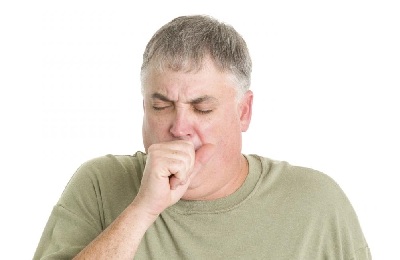
A cough can occur when inhaling warm or cold air, with infections, foreign bodies entering the respiratory tract, with heart failure and for other reasons. To prescribe treatment, it is necessary to determine exactly what led to the disease.
Diagnosis begins with determining the type. The cough may be:
- dry;
- night;
- wet;
- barking;
- paroxysmal;
- with an increase in body temperature;
- painful;
- allergic.
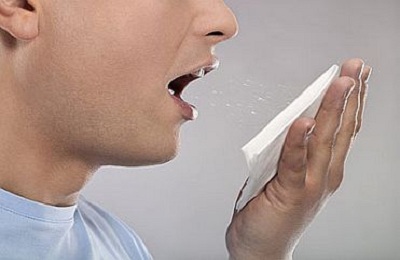 When you cough with yellowish or greenish sputum, you can judge the development of suppurative processes in the respiratory organs. They can occur as a complication of pneumonia, bronchitis, pneumopleuritis. With these pathologies, the temperature rises and a characteristic clinical picture appears.
When you cough with yellowish or greenish sputum, you can judge the development of suppurative processes in the respiratory organs. They can occur as a complication of pneumonia, bronchitis, pneumopleuritis. With these pathologies, the temperature rises and a characteristic clinical picture appears.
Many of our readers actively use the Monastic Collection of Father George to treat coughs and improve their condition with bronchitis, pneumonia, bronchial asthma, and tuberculosis. It contains 16 medicinal plants that are extremely effective in the treatment of chronic COUGH, bronchitis and cough caused by smoking.
The appearance of clear sputum may indicate not a pathology in the lungs, but serious diseases of the cardiovascular system, liver diseases, abscesses, cancer, and tuberculosis.
What to do if you have a severe cough? First, you should consult a doctor and find out the reason that caused it.
Only after a detailed diagnosis will a specialist prescribe treatment. It may include both means traditional medicine, and traditional pharmaceuticals.
Night cough
Typically, the nocturnal manifestation of the disease occurs with asthma, esophageal reflux and pathologies of the cardiovascular system. Night attacks can be with or without sputum production (dry cough). During BA (bronchial asthma), breathing becomes difficult and audible. With heart disease, a dry type and rapid heartbeat appear. Sometimes caused by acid from the stomach entering the esophagus. Its walls become irritated, causing a reflex dry type.
To relieve night attacks, you can drink a glass of warm water, tea, milk, herbal decoctions or infusions. They will help calm the syndrome and soften the mucous membrane and remove accumulated phlegm.
If the cause of your night cough is an allergic reaction, you should take an antihistamine. An attack of night cough can be very strong and cause vomiting. This clinic most often develops with. Both diseases are characterized by a prolonged, persistent cough, which can provoke nosebleeds and, as a result, cause hemoptysis.
If you cough at night, you should definitely measure your temperature. During attacks it can be normal or increased.

If the pathogen penetrates, the body temperature may remain normal, but at night a clogging cough will appear. Therefore, self-medication of any type of disease is not recommended. To identify the cause and eliminate it, the help of a doctor is necessary.
Treatment methods for cough
A very severe cough must be treated comprehensively. In this case, it is necessary to follow the general principles of treatment:
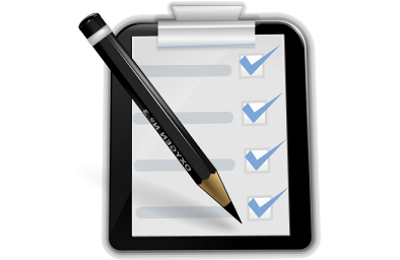
In case of pathology, it should be avoided public places during periods of epidemics.
How to get rid of dry cough?
To treat each type of pathology, certain methods of therapy are used. In order to prevent sleep, it is necessary to remove the contents from the respiratory tract and soften their mucous membrane. A short-term effect can be obtained by sucking lozenges or rinsing with decoctions and herbal infusions every hour.
More effective are medications that have an enveloping, antiseptic, and anti-inflammatory effect. One of these products is Herbion Linkas. These are herbal preparations. The following may also be prescribed:
- Libexin.
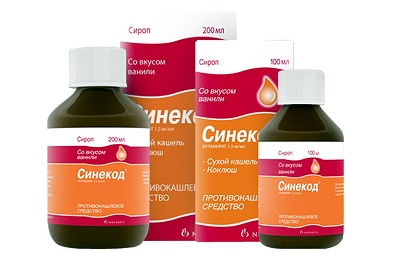

![]()
There are drugs that suppress reflex function at the level of impulses sent by the brain to the body's defense center. But it is worth considering that such drugs are prescribed only by a doctor, and they are taken only according to the regimen prescribed by a specialist. If you take such drugs on your own, the cough may become more complicated. To cure the disease, the doctor may prescribe antibacterial drugs, antivirals, and expectorants.
Any disease can be treated different ways, including alternative medicine.

You can use infusions and decoctions of various medicinal herbs:
- coltsfoot;
- chamomile;
- wild rosemary
A teaspoon of honey is added to any decoction before use.
Treatment of wet cough
To get rid of attacks of the disease, it is necessary to take medications that promote the separation of sputum and its free release. The drugs of choice for this form of the disease are expectorants and secretolytics. These include:
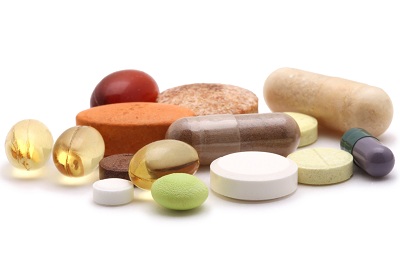
During a wet cough, the use of drugs that help suppress reflexes is prohibited, as this can lead to serious consequences.
To facilitate the separation of sputum, it is necessary to drink as much liquid as possible: water, milk, teas, decoctions and infusions of medicinal herbs.
In folk medicine there are many plants that help cope with a wet cough; the main thing is to prepare the remedy correctly. Let's look at the most effective recipes:
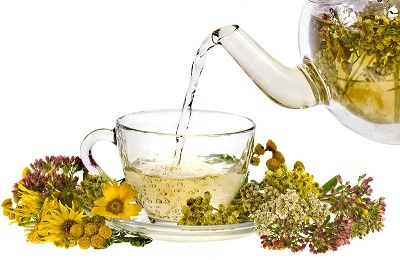
To prepare medicinal tea with ginger, you will need to add half a teaspoon of ginger and the same amount of honey to the container with tea. Mix everything and take three times a day. If desired, you can drink this herbal tea more often. It helps cope with coughs and improves immunity.
Goose or badger fat is used as local preparations. These products are used to rub the area of the bronchi and lungs. It is best to perform this procedure at night, and in the morning wash your skin with warm water with added alkali.
At home, you can prepare various cough ointments. They are prepared using fat. The most effective fats are: goat, mutton, badger, goose. If there are none, then they can be replaced with pork. The fats are rubbed all over the body. Before use, any fat is dissolved in the oven or over low heat under constant supervision. To enhance the healing effect, you can add a little honey. The finished product is kept in a cool place in a dark container.
 In order not to treat severe cough in adults, it is necessary to carry out prevention. It consists of timely contacting a doctor at the first signs of the disease and undergoing annual medical examinations. It is also recommended to lead an active lifestyle, play sports, and take vitamins in the autumn-spring period.
In order not to treat severe cough in adults, it is necessary to carry out prevention. It consists of timely contacting a doctor at the first signs of the disease and undergoing annual medical examinations. It is also recommended to lead an active lifestyle, play sports, and take vitamins in the autumn-spring period.
To reduce cough, it is recommended to add puree, porridge with milk, radish with vegetable oil or sour cream to your diet. Grapes are considered the best expectorant. To calm an attack, it is recommended to heat a glass of grape juice, add a little honey to it and drink.
A correct diagnosis helps to quickly cure a cough by finding the main cause of its occurrence and eliminating it.
Cough can be a symptom of many diseases. This is the body’s protective reaction to irritants in the respiratory organs (mucus, foreign body). And before you start treating a severe cough, it is necessary to establish the true cause of its occurrence.
A correct and timely diagnosis will help not only quickly get rid of a cough, but also minimize the risk of complications for the body. So, when the first symptoms of the disease appear, including a severe cough, you should not postpone a visit to the doctor.
It depends on establishing the cause of the cough. This is why it is so important not to delay your visit to the doctor. Especially if the cough is hysterical, with vomiting, or lasts more than two weeks.
Here are some common factors that can trigger a cough:
- Tobacco smoking. Smoker's cough is quite difficult to treat. But for many it is a problem to get rid of this addiction for the sake of their health.
- Allergy. A severe cough can develop due to the flowering of any herbs or interaction with a substance that is aggressive for a particular organism.
- Infection. Many colds can be accompanied by...
- Tuberculosis. The presence of a dry, prolonged cough may symbolize the development of tuberculosis disease.
- Foreign body. The entry of foreign particles or dust into the respiratory system can cause coughing as a protective reaction of the body.
- Pathologies of the respiratory system. Pathologies such as frontal sinusitis can cause coughing, which also causes irritation.
- Asthma. One sign of developing asthma is a severe, dry cough that gets worse at night.
- Stressful situations. A severe cough, as well as a rash or watery eyes, can occur as a result of strong emotions and nervous shock. This cough is called psychogenic and usually goes away when the person calms down.
- Oncology. Cancers of the ENT organs can also cause coughing. If you have a prolonged dry cough that is not accompanied by a fever, you should be examined by an oncologist.
Whatever the cause of severe coughing attacks, you should not delay its treatment.
First aid for severe cough

Some simple actions can significantly alleviate the condition of a coughing person. It is much easier to breathe in a well-ventilated room with sufficient air humidity. Indoor air that is dry from central heating or fireplaces can cause discomfort in the throat and healthy person, and for the patient it can become a reason for worsening cough.
Therefore, it is necessary to humidify the air in the room, for which you can use a special apparatus or improvised means (hang wet things, cover the radiator with a wet diaper, periodically spray water or steam in the air).
For a severe dry cough, doctors recommend drinking plenty of warm fluids, such as tea. It is also good to treat a cough with some herbs (eucalyptus, mint, thyme) or soda. It should be remembered that some herbs can cause allergic reactions, so the first inhalation should be done for only a few minutes and, in case of a normal reaction, continue after a few hours. Baking soda makes breathing softer; you can add it to a pan of boiling water and breathe in the steam.
More information about cough treatment can be found in the video.
If a severe cough was provoked (flu, bronchitis, whooping cough, etc.), then the above procedures can be carried out in addition to drug treatment which the doctor will prescribe.
The goal of therapeutic procedures is to transform a strong dry cough into a productive wet cough with sputum.
After this, you can start taking mucolytics and other expectorants, for example, Mucoltin or Bromhexine. In the absence of positive dynamics, more is prescribed strong remedies for cough: Ambroxol, ACC. First aid for cough is aimed at alleviating the patient’s condition, but these measures are often not enough to get rid of bronchospasms.
How to treat a severe cough caused by an infection?
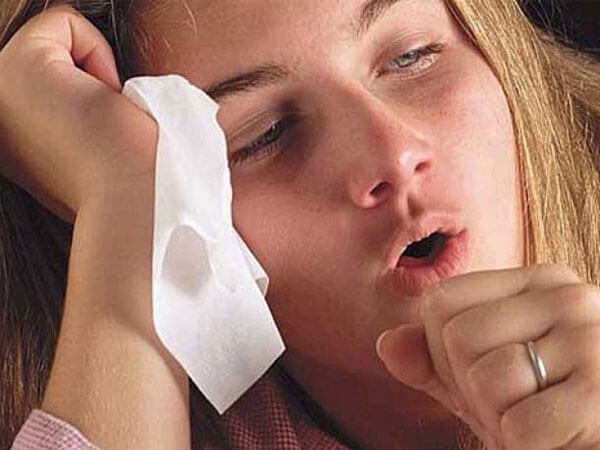 The first step to successfully relieving a cough is diagnosing the infection. Self-medication can lead to aggravation of the situation. In addition to the widespread ARVI or bronchitis, there are a number of serious diseases that, without timely treatment, can cause serious consequences for the body.
The first step to successfully relieving a cough is diagnosing the infection. Self-medication can lead to aggravation of the situation. In addition to the widespread ARVI or bronchitis, there are a number of serious diseases that, without timely treatment, can cause serious consequences for the body.
For example, an infectious disease such as whooping cough is quite difficult to diagnose. Its first sign is a weak cough and general malaise, like any cold. But as the disease progresses, severe coughing attacks occur, which may be accompanied by vomiting. Treatment of such a disease should be carried out only in an inpatient infectious diseases hospital.
Often, ordinary bronchitis can develop into due to the fact that only a cough that was causing concern was treated.
Treatment of an infectious disease must be comprehensive and, in addition to antitussives, must contain antibiotics.
During this period, it is also a good idea to take medications to support the immune system and vitamins, which can speed up the healing process. Cough caused by an infectious disease must be treated symptomatically in combination with other drugs.
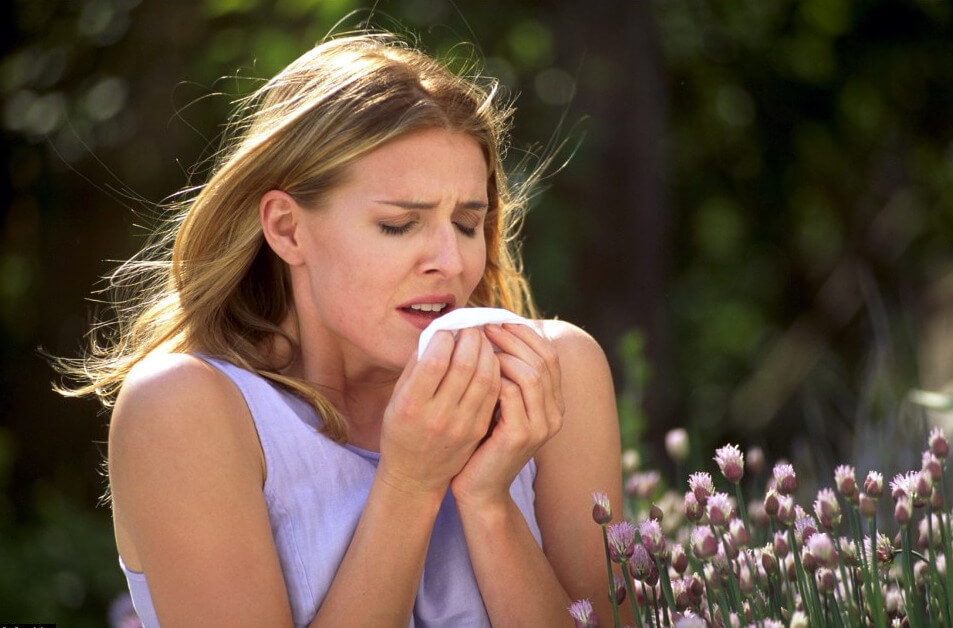 An allergic reaction in the form of cough can occur to any irritant. To quickly get rid of this type of cough, you need to eliminate exposure to the allergen on the body. If the allergen is unknown or cannot be excluded immediately, then you should start taking antihistamines, which will be prescribed by an allergist.
An allergic reaction in the form of cough can occur to any irritant. To quickly get rid of this type of cough, you need to eliminate exposure to the allergen on the body. If the allergen is unknown or cannot be excluded immediately, then you should start taking antihistamines, which will be prescribed by an allergist.
To effectively combat an allergic cough, the allergen must still be identified and eliminated. To do this, you need to undergo an examination by a specialist and take allergy tests. Otherwise, every time you come into contact with a substance that is irritating to the body, the cough will appear again.
Most often, an allergic reaction such as a severe cough occurs when any herbs bloom or dust enters the body.
Fine pollen penetrates the lungs and causes a response from the body. Prevention of such a cough during the flowering of the plant that causes allergies is a set of measures aimed at limiting contact with the allergen.
If an allergy develops to the flowering of any herbs or trees, then you should not ventilate the room. This can only lead to a worsening of the condition. Other activities, such as soda inhalations, will be useful. A complete cure for allergic cough is possible only after eliminating the influence of the dangerous allergen on the body.
Features of the treatment of severe cough in children

A severe cough can occur in children of any age. A child’s body often does not tolerate the disease like an adult, and its symptoms may be more pronounced and severe.
For example, a severe cough with vomiting may occur due to a common cold, which is rarely observed in an adult.
- Before you start, you should check whether the medications prescribed by the doctor are suitable for the age category in which the child is. You should also check the dosage of the drug according to age. For young children, cough syrups are mainly prescribed because they have a pleasant taste and are easier to give to the child.
- Shouldn't give small child dissolving tablets and lozenges, he can choke on them. To reduce the frequency of coughing attacks, you can use an inhaler with a substance that relieves bronchospasm. One of these substances is Ventolin, which should be taken only as prescribed by a doctor.
- Therapy such as steam inhalation should be carried out very carefully with a child. If the mucous membranes are sensitive, the child may get a steam burn. He may also accidentally touch a hot container. Therefore, steam inhalations in children are often replaced with inhalations using a nebulizer.
A compressor or ultrasonic nebulizer breaks the injected medicine into small particles and delivers them through a mask directly into the respiratory tract, thereby reducing the burden on the body.
To soften your breathing, you can inhale with saline, which helps cleanse the respiratory system and make coughing productive.
Treatment of cough in children should be accompanied by a responsible attitude of the supervising doctor and the child’s parents, which will eliminate the emergence of other problems.
Traditional recipes for severe cough
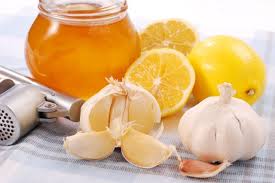
For fans of traditional medicine, there are several recipes that help relieve bronchospasms and calm a severe cough. Some recipes have been successfully used for more than one generation.
Here are a few of them:
- Black radish and honey. A third of the pulp is removed from the black radish and a spoonful of honey is placed there. The radish is placed in a glass of water, tail down. The radish will release juice, which should be taken several times a day.
- Licorice infusion. Licorice root (10 g) is poured with a glass of boiling water and left in a water bath for 20 minutes, and then cooled for another 45 minutes. Next, you need to squeeze out the resulting broth and bring boiling water to 200 ml. To observe the effect, you need to take 1 tablespoon at least 3 times a day.
- Milk. Warm milk with honey will help soothe a cough. People allergic to honey and children are advised to add figs to their milk.
Like medications, they have their own contraindications, which include hypersensitivity to the components of the tincture or decoction. Therefore, they should also be used with caution.
Noticed a mistake? Select it and click Ctrl+Enter to let us know.
Readers liked:

Cough is complex reflex act in which there is a sharp contraction of the respiratory muscles and a powerful push-like release of air from the lungs. A cough occurs when sensitive receptors located in the trachea, larynx, pleura, and large bronchi are irritated.
primary goal cough reflex - clearing the airways of liquid, foreign body or mucus. At its core, a cough is a defense mechanism that is designed to clear the airways of secretions or all kinds of aspirated or inhaled particles.
Depending on the cause of cough, cough is distinguished physiological And pathological.
Physiological cough - this is a completely normal and, one might even say, necessary phenomenon Everyday life person. From time to time, a physiological cough that appears removes sputum accumulated there from the respiratory tract, as well as foreign bodies or crumbs that have fallen into the wrong throat. The main characteristics of a physiological cough: periodic recurrence (with no other symptoms of the disease), short duration.
Unlike physiological pathological cough manifests itself against the background of all kinds of respiratory diseases. As mentioned above, physiological cough is the same in all cases and there are no special problems with its diagnosis. Pathological cough, on the contrary, has a very diverse character, in many cases depending on the nature of the disease that caused it. In order to correctly diagnose and treat a disease that is accompanied by a cough, it is extremely important to establish the individual characteristics of this cough.
Depending on duration of symptoms The following types of cough are distinguished:
spicy(no longer than one to two weeks),
protracted(from two weeks to a month),
infraspinatus(from a month to eight weeks),
chronic(more than two months).
A cough accompanied by mucus production is called productive. When there is no mucus discharge, a cough is called dry
Acute cough arising against the background of acute respiratory infections (ARVI). This type of cough is the most common. An acute cough against the background of an acute respiratory disease develops over several hours or days and is characteristic of diseases such as laryngitis, pharyngitis, bronchitis, tracheitis, pneumonia, bronchiolitis.
The main characteristics of this cough:
gradual development over several hours or several days,
the presence of other symptoms of the disease (runny nose, increased body temperature, feeling weak, weakness, in children - refusal to eat, moodiness, anxiety),
change in the nature of the cough from dry to wet.
The main development factor lingering cough is not an infection, as with an acute cough, but the excessive sensitivity of cough receptors and increased sputum production as a result of the illness. That is, a lingering cough is not so much a symptom of the disease as a natural attribute of the healing process. When choosing cough treatment tactics, this fact is important.
Recurrent cough - This is a prolonged, periodically recurring cough, the duration of which exceeds two weeks. Recurrent cough is characteristic of diseases such as obstructive bronchitis or bronchial asthma.
Constant cough characteristic of a number of chronic diseases of the pulmonary tract and lungs. We are talking about a persistent cough when the patient actually coughs constantly (that is, the cough can sometimes weaken or intensify, but it is constantly present). A wet, persistent cough is a sign of diseases such as cystic fibrosis, pulmonary tuberculosis, and bronchiectasis. Diseases such as fibrosing alveolitis or laryngeal papillomatosis are characterized by a dry, persistent cough.
Diseases that can cause cough:
chronic obstructive pulmonary disease,
allergies, asthma,
runny nose,
chronic rhinitis and sinusitis,
gastroesophageal reflux disease (GERD, heartburn),
congestive heart failure,
sarcoidosis,
lungs' cancer,
sinus infection,
tuberculosis.
Possible causes of cough
1) All kinds of bacterial and viral infections of the lungs or respiratory tract. Diseases: pneumonia, bronchitis, bronchiectasis, viral infections, whooping cough, pharyngomycosis (fungal infection of the upper respiratory tract), etc.2) Tumor diseases.
3) Smoking.
4) Chronic obstructive pulmonary disease.
5) Foreign body aspiration.
6) Tuberculosis.
7) Diseases of the gastrointestinal tract, mainly gastroesophageal reflux.
8) Diseases of the cardiovascular system that lead to stagnation of blood in the pulmonary circulation (in the lungs), such as, for example, coronary pulmonary disease of the fourth functional class.
9) Mental disorders.
10) Cough can occur as by-effect when taking certain medications, as an option - medications used to lower blood pressure ( enam, enap and so on.).
11) Chemical irritation (gases, tear gas, smoke).
Allergic cough
In fact, the concept of “allergic cough” is incorrect, since such a term is absent in the modern classification of diseases. If there is a connection between a cough and an allergic process, then, as a rule, we are talking about the cough variant of bronchial asthma. In what cases would it be correct to talk about a cough as being associated with an allergic process?Paroxysmal cough which begins suddenly and can last for quite a long time.
Chronic cough. When a patient begins to cough, he cannot stop for a long time. Most often, attacks occur at night.
The cough is predominantly dry. In some cases, at the end of a coughing attack, a small clot of light or clear sputum may be discharged. Sometimes patients note that the cough was provoked by any external factors: contact with animals, dust, strong odors, old books, etc. During coughing attacks, you may also experience a feeling of difficulty breathing and suffocation.
Cough treatment
Depending on the cause of cough, medications are selected individually. Antitussives are divided into two types: those that thin mucus and those that promote expectoration.In most cases, it is necessary to treat a cough caused by acute respiratory viral infections, or ARVI, that is, what is commonly called a cold. There is nothing surprising in the fact that a mild cough occurs against the background of a cold. Most often, such a cough does not require any treatment and disappears on its own along with the underlying disease. In other cases, for example, during bronchitis, the cough can be persistent and severe, accompanied by the discharge of viscous sputum. In this situation, sputum thinning treatment may be necessary and effective.
How is cough treated? First of all, you need to try drink as much fluid as possible, since drinking plenty of fluids stabilizes the water balance in the body, which is disturbed during illness, and helps to dilute sputum. During coughing and pharyngitis, it is extremely useful to drink abundant mineral waters (Borjomi is one of the options), since their chemical composition also facilitates the production of sputum and speeds up the healing process. The diet should include light but calorie-rich foods, as well as fruits and vegetables.
Secondly, during cough and cold effective remedy – inhalation. They are indicated for older children and adults. Young children (under the age of 4 years) inhalation is not recommended, as this can cause an attack of suffocation. To prepare inhalation, you need to take the leaves of chamomile, coltsfoot, thyme, sage (one tablespoon of each ingredient), place in a large container and pour boiling water. Add a teaspoon of baking soda and a few drops of eucalyptus or menthol oil to the resulting infusion. Such inhalation must be carried out several times a day.
Thirdly, if the cough is persistent with viscous sputum (most likely bronchitis or tracheitis), you need to take medications to thin the sputum: mucolytic and expectorant agents. Most of these medications come in both pediatric and adult forms. We advise you to opt for herbal medicines, as well as mucolytics, such as "Lazolvan" ("Ambroxol"), ACC (acetylcysteine), "Bromhexine". The use of mucolytics is advisable in cases where sputum is present, but it is viscous and difficult to remove.
It makes sense to take expectorants if coughing produces a small amount of sputum (scanty sputum), since these drugs stimulate the secretion of sputum by the bronchial glands, diluting it and strengthening the cough reflex, which leads to clearing of the airways during a cold or bronchitis.
Antitussive drugs are prescribed only by the attending physician, as they can lead to serious adverse reactions. You should not combine the use of mucolytic cough suppressants and antitussives, as this can cause blockage of the bronchi with mucus.
Traditional methods of treatment
You can buy a chest pack at the pharmacy, but if you wish, you can make it yourself. This should be done like this: take equal parts of licorice, thyme, linden, oregano, coltsfoot, mint, pine buds, plantain, lungwort, calendula, and chop. For half a liter of boiling water, take two tablespoons of the mixture and leave for an hour and a half in a warm place. Strain the resulting decoction and take 150 ml three to four times a day for 30 minutes before eating.During whooping cough, dry cough and colds must be taken 2-4 once a day before meals, a third of a glass of the following brew: brew four to five pieces of figs with one glass of boiling milk, wrap, let it brew until it cools down. You can also rub the patient’s chest with the following mixture: three parts of plantain leaf, three parts of licorice root, four parts of coltsfoot leaves.
If the cough is severe, The following recipe is suitable: add half a teaspoon of soda and the same amount of unsalted interior fat to a glass of boiled milk, mix thoroughly, drink hot in small sips two to three times a day before meals.
Before going to bed, rub your chest with internal fat (lamb or goat fat is ideal), put on a cotton T-shirt, pull a woolen sweater over it and go to bed.
An untreated, severe, depressing cough can cause a lot of pain and complications. Treatment should begin when the first symptoms of the disease appear. Let's look at various cough treatment methods, depending on their effectiveness.
What is a cough
Cough is a reflex protective “helper” of our body, which helps to get rid of the presence of a kind of irritating secretion, dust or any foreign bodies in the mucous membranes of the respiratory tract. There are many causes of cough, but the main ones are bacterial, viral or chronic respiratory diseases of the respiratory tract.
Types of cough
There are physiological (a normal, short-term everyday process of coughing in a healthy person, aimed at naturally clearing the respiratory tract of accumulated mucus) and pathological cough (diagnoses a disease, manifests itself against its background). The gradation of pathological cough is acute or chronic wet (wet, productive, with sputum discharge) and dry (paroxysmal, barking, debilitating, without the release of specific secretions from the respiratory tract).
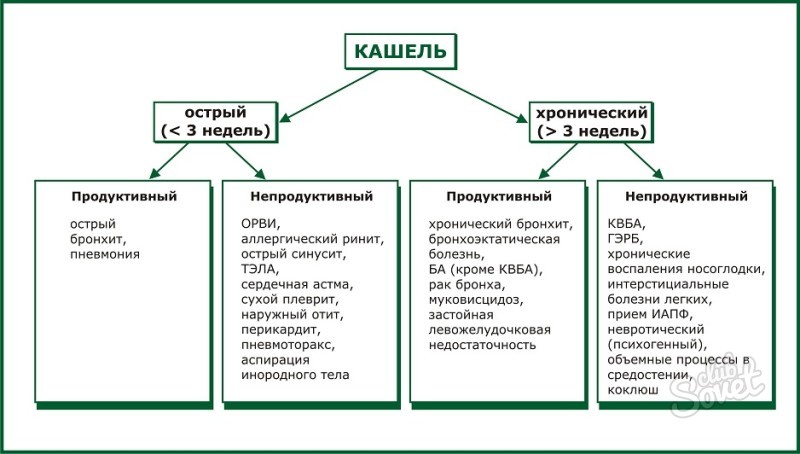
Specifics of cough treatment
Treatment of cough depends on the causes of its occurrence and its type. If the cough is not severe and accompanies respiratory diseases such as ARVI or the common cold, there is no need to forcibly eliminate it. In other cases, when the cough is dry, exhausting, strong, persistent, treatment is used to produce sputum and dilute it, for then better clearance from the respiratory tract.
- The very first thing to start eliminating cough (before using medications and auxiliary folk techniques) is humidifying the air in the room, drinking plenty of fluids in the form of warm teas and mineral waters, giving up bad habits, as well as changing your diet to light, but high-calorie foods. All this will help stimulate sputum secretion.
- Inhalations are an excellent and effective remedy that has no contraindications (exceptions for use are children under 4 years old), which should be performed several times a day. You can do inhalations using the usual “old-fashioned” method, inhaling steam from a steamed medicinal plant, when coltsfoot, eucalyptus, thyme, sage, and chamomile are brewed. You can add soda and a few drops of menthol or eucalyptus oil to the herbs.
- A more productive method of inhalation is the use of inhalers-nebulizers. In this case, pharmaceutical drugs that have mucoltic and expectorant properties are used. Opt for such drugs as “Dikasan”, “Lazolvan”, “Amroxol”, “Bromhexine”, “Gerbion”, “Prospan”, alkaline mineral waters.

Traditional methods of treating dry and wet cough
With a dry cough, the most important thing is to remove the irritant and soften the mucous membrane. To do this, you can use lollipops, various rinses that have anti-inflammatory and antiseptic effects. But, it is worth considering that the effect of such “treatment” will not last long. The best option to eliminate cough will be the use, together with pharmaceutical drugs, of traditional methods. This will significantly speed up the process of recovery and restoration of the body not only from an exhausting dry cough, but also from a wet cough.
Milk for cough
- Milk has softening, mucoltic properties, dilutes mucus well and facilitates its easier removal from the respiratory tract. A dry cough that accompanies a cold, bronchitis, tracheitis or whooping cough can be easily relieved with a decoction of figs in milk. To do this, brew 5 figs in 200 ml of milk. Wrap the broth, let it brew and use 1/3 cup 2-3 times a day.
- If you have a severe dry cough, drink hot milk (200 ml) in small sips before meals with 1 tsp added. soda, honey and interior fat.
- Mix milk in equal proportions with freshly squeezed carrot juice. Take the resulting product 1/3 cup several times a day.
- Chop 2 onions and boil in 200 ml of milk. Strain, take 1 tbsp. l. every 4-5 hours.
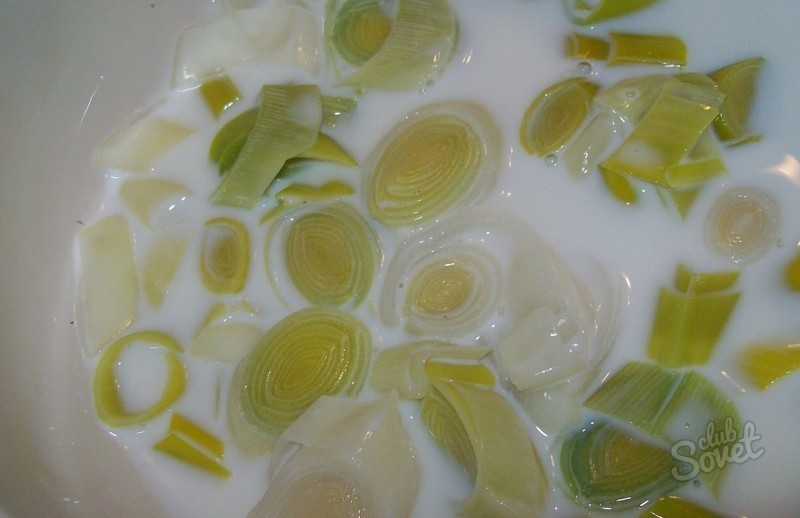
Honey and radish for severe cough
Radish juice has bactericidal, anti-inflammatory and expectorant properties. Buy a large, pot-bellied black radish. Trim the top, making a cap in the form of a cap, and a little bottom. From the inside, remove about 1/3 of the radish pulp. Carefully make a small puncture to the bottom of the root crop. Fill the entire prepared cavity with honey. Place the radish in a container into which juice mixed with honey will flow out from the puncture. Through 2-4 hours you will get an excellent, indispensable natural remedy for severe cough. Take 1 tbsp syrup. l. 3-4 times a day before meals. Through 2-3 days The cough will completely leave you.
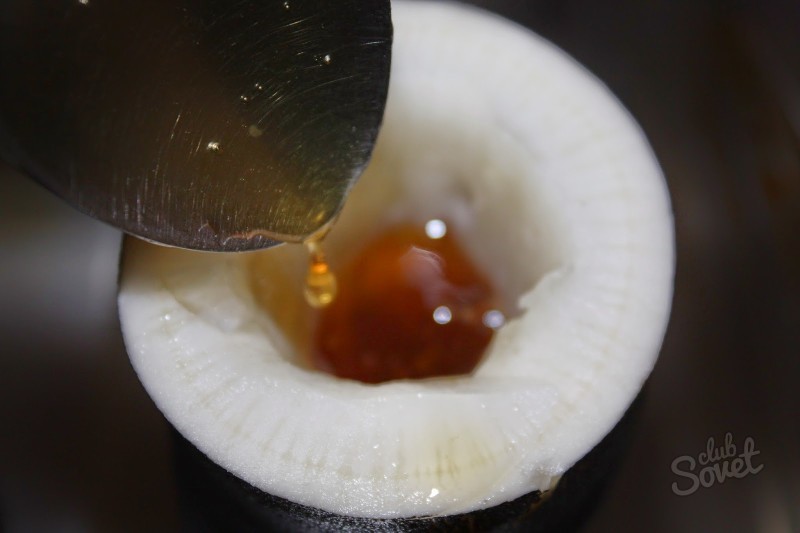
Cough compresses and rubs
- Before going to bed, rub your chest with lamb or goat fat. After rubbing, warm yourself well and go to bed.
- To eliminate cough in children, use a dry compress of mashed potatoes. Prepare a mixture of puree and vodka. Place this warm in a plastic bag, wrap it in a napkin and apply it to the back and chest. Wrap the compress with a warm scarf and leave until completely cool.
- A honey compress will help with a strong cough. Rub honey on your chest, make a steam layer (parchment, warm scarf), lie down under a blanket to warm up. As soon as the warming is over, wash yourself with warm water and lubricate your chest with vegetable oil.
- A compress of vegetable oil heated in a water bath can help relieve an incessant, difficult-to-clear cough. Soak a thick cloth in the prepared oil, wrap it around your chest, place parchment paper and insulation in the form of a scarf or towel on top. Leave this compress on all night.
Note! Compresses and rubbing can be used if you do not have a fever.

Cough decoctions and infusions
- If it is not possible to purchase breast milk at the pharmacy, prepare it yourself. To do this, mix in equal proportions and chop thyme, pine buds, oregano, mint, licorice, coltsfoot, linden, calendula and lungwort. Pour 4 tbsp. l. mixture 1 liter of boiling water, leave for 1-1.5 hours, use 150 ml 3 times a day 30 minutes before meals.
- Marshmallow infusion has good antitussive properties. To prepare it, 2 tbsp. l. crushed root pour 500 ml cold water. Keep the mixture in the cold for a day. Afterwards, strain, add a little sugar, take 1 tbsp. l. 2-3 times a day.
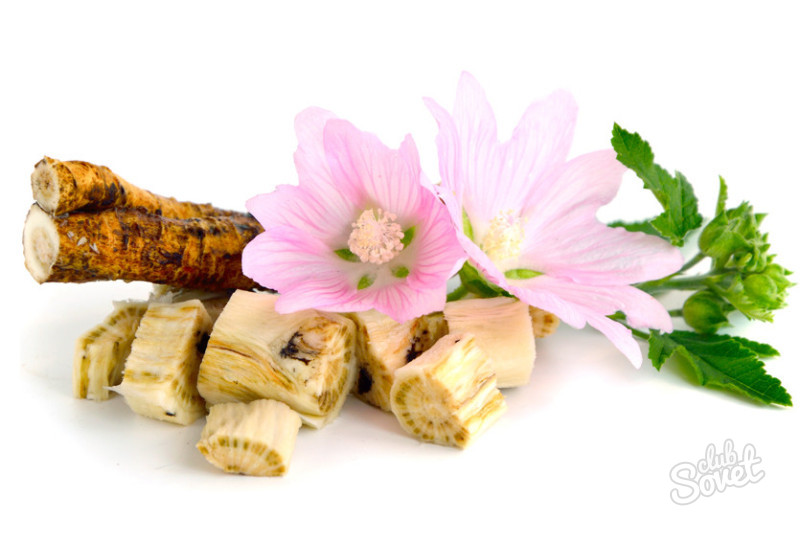
Aloe for severe cough
Mix honey, aloe and butter in equal proportions. Accept this remedy 4-5 once a day 1 tsp.
Treatment of severe cough in children
Small children (up to 1 year) require medical supervision and supervision. For older children, use plenty of warm drinks, mustard plasters, rubbing, hot foot baths, compresses, inhalations, sedatives nervous system(“Tussamogom”, “Sinekod”) and having expectorant mucoltic properties.

Please note that eliminating a cough should not be done independently, without the supervision of a specialist (for microbial diseases of the respiratory tract, the prescription of antibiotics is required), since improper treatment can lead to complications, and the combination and use of mucolic and antitussive drugs can lead to unpleasant consequences in the idea of bronchial blockage .
The article is for informational purposes only; before treatment, you should consult with a specialist.
